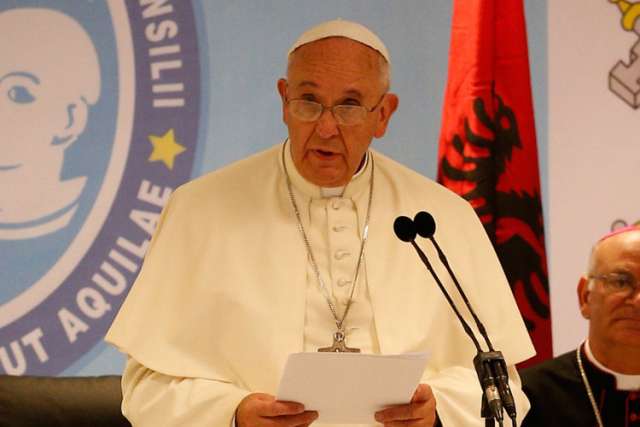The pope's words appeared in his annual message for the World Day of Migrants and Refugees, which in 2015 will be observed Jan. 18. The Vatican released the pope's message, "Church Without Frontiers, Mother to All," Sept. 23.
"Large numbers of people are leaving their homelands, with a suitcase full of fears and desires, to undertake a hopeful and dangerous trip in search of more humane living conditions," the pope wrote. "Such migration gives rise to suspicion and hostility, even in ecclesial communities, prior to any knowledge of the migrants' lives or their stories of persecution and destitution."
Pope Francis called on all to honor the "biblical commandment of welcoming with respect and solidarity the stranger in need."
"Jesus Christ is always waiting to be recognized in migrants and refugees, in displaced persons and in exiles, and through them he calls us to share our resources, and occasionally to give up something of our acquired riches," he wrote.
But individual and even national efforts to help migrants are insufficient, the pope wrote.
"Migration movements, however, are on such a scale that only a systematic and active cooperation between states and international organizations can be capable of regulating and managing such movements effectively," he wrote.
According to the United Nations, there were 232 million international migrants in 2013, representing a rise of 50 percent since 1990.
At a news conference to present the pope's message, Bishop Joseph Kalathiparambil, secretary of the Pontifical Council for Migrants and Travelers, said that in 2013 the number of refugees, asylum seekers and displaced persons exceeded 50 million for the first time since World War II.
"A more decisive and constructive action is required, one which relies on a universal network of cooperation, based on safeguarding the dignity and centrality of every human person," Pope Francis wrote. "This will lead to greater effectiveness in the fight against the shameful and criminal trafficking of human beings, the violation of fundamental rights, and all forms of violence, oppression and enslavement."
"It is necessary to respond to the globalization of migration with the globalization of charity and cooperation," he wrote.
Pope Francis has made migration a signature issue of his pontificate. In July 2013, less than four months after his election as pope, he traveled to the southern Mediterranean island of Lampedusa, a major entry point for undocumented immigrants to Europe, to commemorate those who had died attempting to cross the sea from North Africa.
The pope has met with international refugees in Rome and, during a May visit to the Holy Land, in Jordan. He has also frequently denounced human trafficking, calling it a "crime against humanity."


